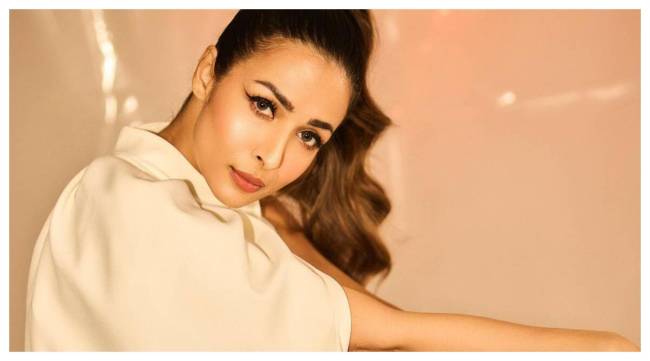Opinion The exploitative feminism of ‘Moving in with Malaika’
By becoming a pretentious crusader for women’s rights to get some ratings and keep herself afloat in the TV industry, Malaika Arora has only superficially mined the issues that women fight against
 If Arora thinks that she did gain a fair amount of sympathy or empathy with her self-deprecatory stand-up act in the show, she would do well to remember that much of the humour was at the expense of her mother and sister, the two people who supposedly held her up, not the men in her life. (Photo: Instagram/malaikaaroraofficial)
If Arora thinks that she did gain a fair amount of sympathy or empathy with her self-deprecatory stand-up act in the show, she would do well to remember that much of the humour was at the expense of her mother and sister, the two people who supposedly held her up, not the men in her life. (Photo: Instagram/malaikaaroraofficial) Why do we eat junk food? Because for that one fleeting moment of meaningless indulgence, there is no guilt about being irresponsible. There is no admonition or judgement for our baser cravings. Reality TV is much like having junk food for dinner, which has, as a genre, built up an appetite for silly content, following the lives and bedroom secrets of the rich and famous. Only the celebrity, who thinks that this access pass works to lengthen their lifespan in public memory, ends up looking sillier. And the viewer, who pop psychologists believe gets a vicarious pleasure or an affirmation that they are better off poorer, is left with a bad aftertaste. An extra slice of cheese on a burger bun is any day healthier.
So it is that Malaika Arora, former model, MTV VJ and performer, who set hearts racing by matching steps with Shah Rukh Khan atop a train, has decided to let the camera into her room in a show called Moving in With Malaika. Once the nation’s most wanted showgirl, courtesy her music videos, she now wants to reveal the dark side of her glamorous life. So, she wants to counter ageism (she is 49), fight societal biases, take on trolls, build body positivity and in short, become a real woman. Except that she ends up trivialising these issues and ends up stereotyping herself. By becoming a pretentious crusader for rights to get some ratings and keep herself afloat in the TV industry, she has only mined the issues that women fight against for relevance.
For starters, Arora looks incredibly put together with a bevvy of brands endorsing her show and changing her outfit every five minutes on her confession couch. Yes, she displays amazing yoga skills on the mat, applies an array of anti-ageing serums and defends her derriere rather glibly. But for many women of her age group out there, who don’t have the same grooming privileges, she just reinforced the vanity of having the perfect curl of hair fall on her angular jawline. There’s a total denial of the droopy laugh line with an aggressive cover-up. If anything, the camera panning the brands on her dressing table tempts you to hide your spots, instead of accepting them.
Perhaps Malaika knows this, considering women TV anchors around the globe are usually kicked upstairs as programming heads or show conceptualisers, rather than continuing to hold their own on screens. Silver-haired male anchors, and even a bespectacled, grouchy and slouchy Karan Johar, have no expiry date, season after season. By yielding to social pressures on ageing women, Arora became as much an ageist: Look good and be perky, even if you are pushing 50, don’t let the crow’s feet show. More age-defiance than age-acceptance.
Malaika even talks about the stretch marks on her belly and mocks people who criticise them, saying she at least birthed a child, making motherhood look like a conquest of sorts. In a country where women hide their pregnancy for fear of being bypassed at the workplace — just last week Drishyam actor Shriya Saran admitted that she hid her pregnancy lest it affects her career — such a facetiousness about motherhood, as just another box to be ticked, does not normalise the conversation for women debating when to time their baby and how. She also admitted that her mother stood in to take care of her son for the first five years as she went out for shoots. Most young mothers today live in nuclear units, so she certainly offered no help in that department. Also, in this day and age, you cannot just tell men, “Arre humne bachcha paida kiya hai.” They already know and a growing number of men in the young generations are trying to help as co-progenitors.
As for the dance-off on her iconic song “Chaiyya Chaiyya” with the new diva and performer Nora Fatehi, Arora claims she did it to neutralise conversations about her insecurities regarding younger competition, and that she was cool about it. Was she indeed? Watch the clip and you would know that Malaika went in with the spirit of competition rather than goodwill, the better moves choreographed for her. No doubt she aced her act, but was there also some desperation to appear better, to own her act, something more than just gracious coexistence? She could have been far more original by just doing a cover version featuring herself.
But what takes the cake for a Thane girl, who was among the country’s first supermodels (and we would have liked to know more about that journey) was the question about the role of her ex-husband Arbaaz Khan in her career. Her guest and filmmaker friend Farah Khan reminds her, “You got a great husband who lets you work, let you do everything.” Does that mean that a woman’s success is dependent on what the man/men in their lives allow them to be? By that logic, she is privileged and cannot equate herself to the many working women who had to earn their rights despite obstacles. And by actually counting her blessings, Malaika, in one stroke, demolished every self-made benchmark, attributing them to the largesse of a man and being “allowed” to go her way by the Khan family.
If Arora thinks that she did gain a fair amount of sympathy or empathy with her self-deprecatory stand-up act in the show, she would do well to remember that much of the humour was at the expense of her mother and sister, the two people who supposedly held her up, not the men in her life. It would be better if Arora was as honest as the Kardashian sisters, revealing shopping secrets with her besties. That silliness would be far more acceptable than this plastic effort and self-assigned responsibility of being a woman of substance.
rinku.ghosh@expressindia.com





